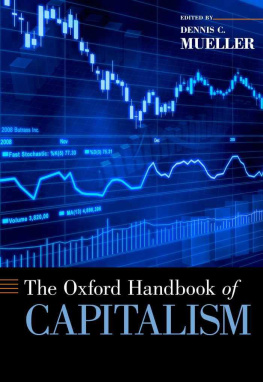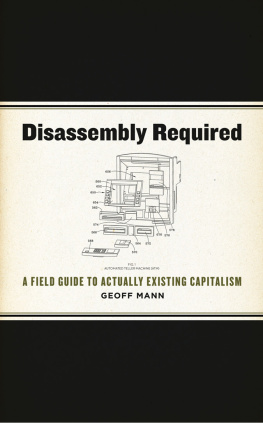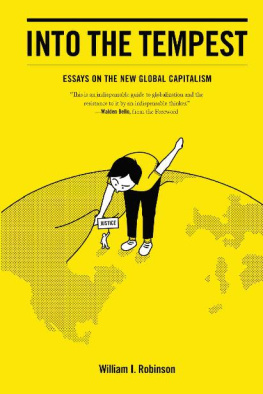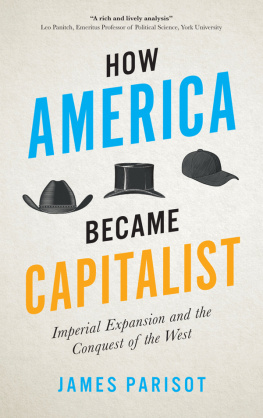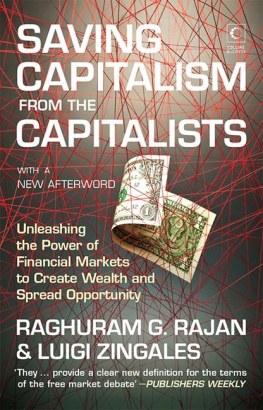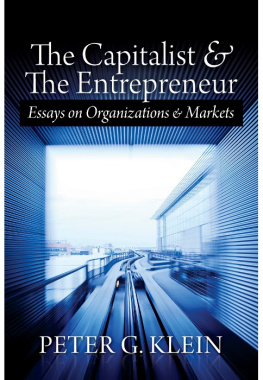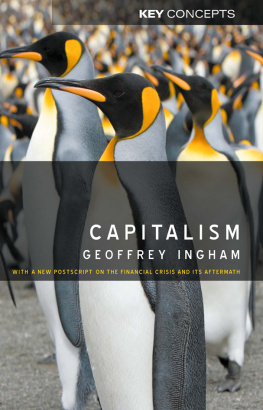THE OXFORD HANDBOOK OF
CAPITALISM
CONSULTING EDITORS
MICHAEL SZENBERG
LUBIN SCHOOL OF BUSINESS, PACE UNIVERSITY
LALL RAMRATTAN
UNIVERSITY OF CALIFORNIA, BERKELEY EXTENSION
THE OXFORD HANDBOOK OF
CAPITALISM
Edited by
DENNIS C. MUELLER


Oxford University Press, Inc., publishes works that further
Oxford Universitys objective of excellence
in research, scholarship, and education.
Oxford New York
Auckland Cape Town Dar es Salaam Hong Kong Karachi
Kuala Lumpur Madrid Melbourne Mexico City Nairobi
New Delhi Shanghai Taipei Toronto
With offices in
Argentina Austria Brazil Chile Czech Republic France Greece
Guatemala Hungary Italy Japan Poland Portugal Singapore
South Korea Switzerland Thailand Turkey Ukraine Vietnam
Copyright 2012 by Oxford University Press, Inc.
Published by Oxford University Press, Inc.
198 Madison Avenue, New York, New York 10016
www.oup.com
Oxford is a registered trademark of Oxford University Press.
All rights reserved. No part of this publication may be reproduced, stored in a retrieval system, or transmitted, in any form or by any means, electronic, mechanical, photocopying, recording, or otherwise, without the prior permission of Oxford University Press.
Library of Congress Cataloging-in-Publication Data
The Oxford handbook of capitalism/edited by Dennis C. Mueller.
p. cm.
Includes bibliographical references and index.
ISBN 978-0-19-539117-6 (cloth :alk. paper)
1. CapitalismHandbooks, manuals, etc. I. Mueller, Dennis C.
II. Title: Handbook of capitalism.
HB501.O97 2012
330.122dc23
2011034409
1 3 5 7 9 8 6 4 2
Printed in the United States of America on acid-free paper
CONTENTS
Introduction: The Good, the Bad, and the Ugly
Dennis C. Mueller
1. The Modern Capitalist World Economy: A Historical Overview
Jeffry A. Frieden
2. Legal Institutions and Economic Development
Thorsten Beck
3. Capital Markets and Financial Politics: Preferences and Institutions
Mark J. Roe
4. The Four Types of Capitalism, Innovation, and Economic Growth
William J. Baumol, Robert E. Litan, and Carl J. Schramm
5. The Dynamics of Capitalism
F. M. Scherer
6. The Role of Finance in Economic Development: Benefits, Risks, and Politics
Thorsten Beck
7. Property Rights and Capitalism
Paul H. Rubin and Tilman Klumpp
8. Management and Governance of the Business Enterprise: Agency, Contracting, and Capabilities Perspectives
David J. Teece
9. Contracts
Victor P. Goldberg
10. Capitalism as a Mixed Economic System
Richard R. Nelson
11. Monopoly Capitalism
Keith Cowling and Philip R. Tomlinson
12. Agency Problems and the Fate of Capitalism
Randall Morck and Bernard Yeung
13. Executive Compensation: Governance and the Financial Crisis
Martin J. Conyon
14. Bubbles in Asset Prices
Burton G. Malkiel
15. Mergers and the Market for Corporate Control
Dennis C. Mueller
16. Dispersed Ownership: The Theories, the Evidence, and the Enduring Tension between Lumpers and Splitters
John C. Coffee Jr.
17. The East Asian (mostly Japanese) Model of Capitalism
Hiroyuki Odagiri
18. Refounding Capitalism
Edmund S. Phelps
PREFACE
This handbook has three objectives: (1) to describe the advantages of capitalist sytems, (2) to discuss some of their disadvantages, and (3) to describe some of the differences in capitalist systems in different countries. In putting this volume together, I have been fortunate in being able to work with a great group of scholars.
The original outline included two additional chapters: one discussing market competition, and a second describing capitalist institutions in Europe. Unfortunately, these chapters did not materialize. Because the first of these would have focused on the positive side of capitalism, its absence makes the volume seem a bit more critical of capitalist institutions than was originally intended. This bias would have been even greater had Thorsten Beck not offered to write a second chapter on financial markets. Despite the two missing chapters, I think the diligent reader will come away with a rather complete picture of capitalisms pluses and minuses.
In putting this volume together, I have been greatly aided by Heide Wurm, who has edited the essays and made sure that they are properly formatted. I thank her for all of her efforts.
CONTRIBUTORS
Dennis C. Mueller is Professor of Economics, Emeritus, at the University of Vienna. Before coming to Vienna, he was at the University of Maryland, College Park. His research interests are industrial economic, public choice, and constitutional political economy.
William J. Baumol is Harold Price Professor of Entrepreneurship and Academic Director of the Berkley Center for Entrepreneurship and Innovation at New York University and Senior Economist and Professor Emeritus at Princeton University.
Thorsten Beck is Professor of Economics at Tilburg University and Chairman of the European Banking Center, as well as a CEPR fellow. Before joining Tilburg University and the CenTER, he worked at the Development Research Group of the World Bank.
John C. Coffee Jr. is Adolf A. Berle Professor at the Columbia University Law School, and Director of its Center on Corporate Governance. He is a Fellow at the American Academy of Arts and Sciences.
Martin J. Conyon is Professor of Corporate Governance and Finance at Lancaster University and Senior Fellow and Lecturer at the Wharton School, University of Pennsylvania.
Keith Cowling is Professor Emeritus at the University of Warwick. His research interests are in industrial economics, especially the deficiencies of monopoly capitalism, economics and democracy, industrial policy, and corporate governance and the public interest.
Jeffry A. Frieden is Professor in the Department of Government at Harvard University. His research focus is on the politics of international monetary and financial relations.
Victor P. Goldberg is Jerome L. Greene Professor of Transactional Law at Columbia Law School. His areas of research are law and economics, antitrust, regulation, and contracts.
Tilman Klumpp is Assistant Professor in the Economics Department at Emory University. His research fields are microeconomics, applied game theory, public economics, political economics, economics of discrimination, and industrial organization.
Robert E. Litan is Vice President of Research and Policy at the Kauffmann Foundation.
Burton G. Malkiel is Chemical Bank Chairmans Professor of Economics Emeritus and Senior Economist at Princeton University.
Randall Morck is Jarislowsky Distinguished Professor of Finance and University Professor at the School of Business at the University of Alberta. His research interests are corporate finance, economic development, and political economy.
Richard R. Nelson is George Blumenthal Professor Emeritus of International and Public Affairs, Business, and Law at Columbia University. His research has concentrated on the processes of long-run economic change, with particular emphasis on technological advances and the evolution of economic institutions.
Next page
